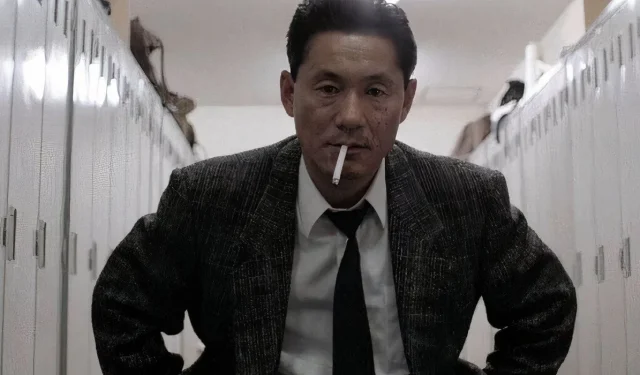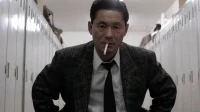Japan’s film landscape offers a rich tapestry of genres, among which the yakuza movies stand out as particularly influential. This genre has not only been shaped by some of Japan’s most prominent directors but has also prominently featured many acclaimed actors, underscoring its significance in Japanese cinema. While yakuza films primarily showcase the lives and challenges faced by members of the yakuza, their broad definition allows for diverse storytelling methods, each offering fresh perspectives.
Originating in the 1950s, though traces can be found in earlier works, the yakuza genre often reflects the tumultuous changes in post-war Japan. It delves into how the evolving political climate impacts organized crime, presenting a detailed exploration of the yakuza’s strict code of honor and the swift transformations that challenge long-standing traditions. This depth has paved the way for some of the most iconic films in Japanese history.
15 Ichi The Killer (2001)
Directed by Takashi Miike
Renowned for his provocative style, Takashi Miike stands as one of the most divisive yet influential figures in Japanese cinema. His film “Ichi the Killer”remains a cornerstone of yakuza cinema, famous for its visceral violence and controversial themes. It propelled Miike into the international spotlight following his earlier work, “Audition.”
“Ichi the Killer”immerses viewers into the chaotic and brutal world of the yakuza, emphasizing the often-violent nature of the criminal underbelly. The performances, particularly Tadanobu Asano as Kakihara and Nao Omori as the sadistic Ichi, are haunting and unforgettable, elevating the film’s status amongst yakuza narratives.
14 Under The Open Sky (2020)
Directed by Miwa Nishikawa
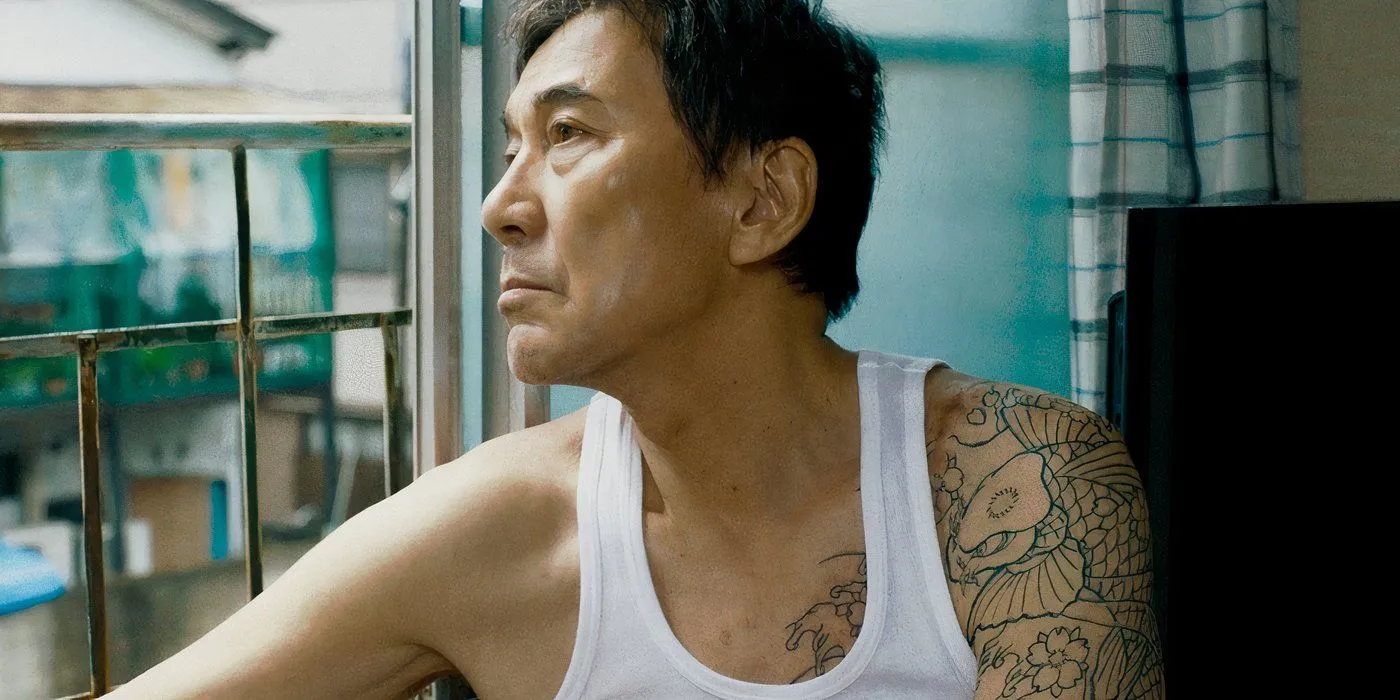
Offering a fresh perspective, “Under the Open Sky”diverges from traditional yakuza narratives by focusing on Masao Mikami, a lifelong gang member grappling with reintegration into society after a lengthy prison sentence. Remarkably, Miwa Nishikawa directs this film, breaking the mold of male-dominated direction in the genre.
Koji Yakusho delivers a poignant performance, capturing the grief and struggles of a man attempting to redefine his purpose in the face of change. This film’s emotional depth and tender approach set it apart from its predecessors while remaining firmly rooted in yakuza themes.
13 Youth Of The Beast (1963)
Directed by Seijun Suzuki
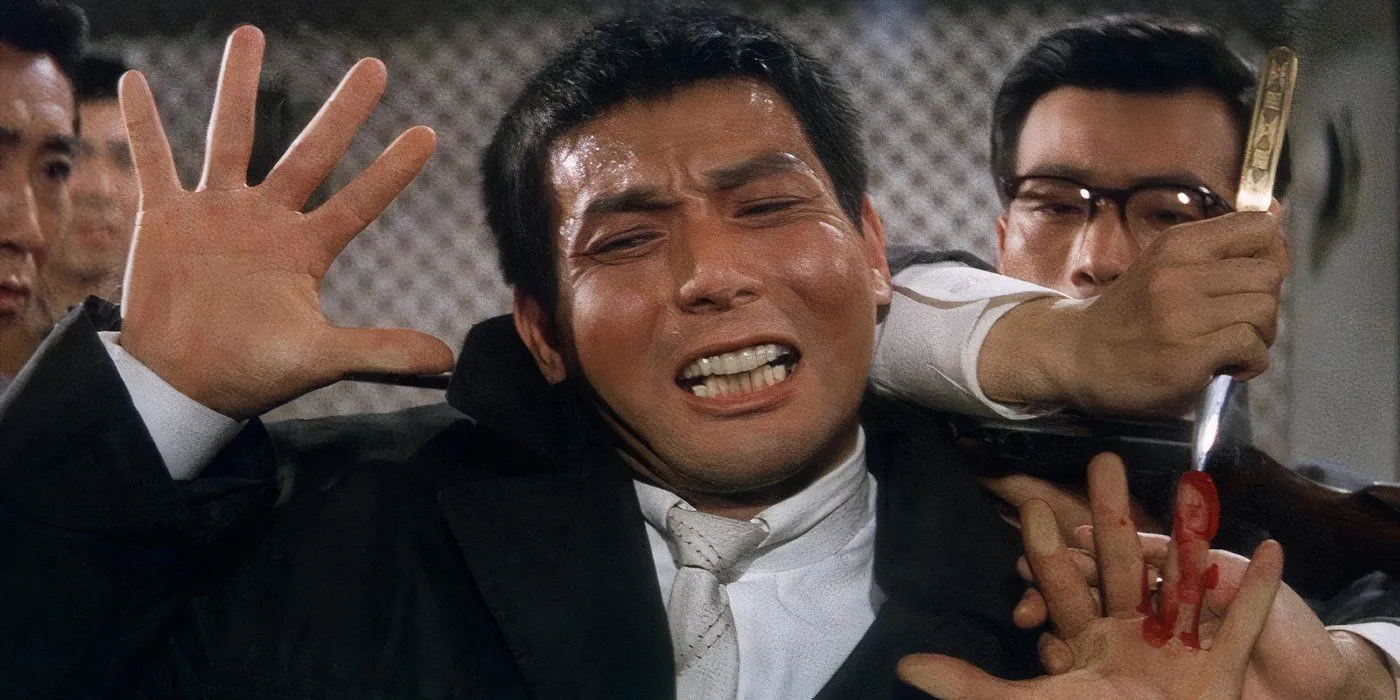
In “Youth of the Beast,”Seijun Suzuki blends stylish visual storytelling with classic narrative arcs of the yakuza genre. Featuring Joe Shishido as a man embroiled in yakuza intrigue, this film remains an enduring touchstone despite its lukewarm initial reception.
Over time, “Youth of the Beast”has not only gained a cult following but has also solidified its place within Suzuki’s impressive body of work, showcasing his unique directorial flair.
12 Sonatine (1993)
Directed by Takeshi Kitano
In “Sonatine,”Takeshi Kitano masterfully depicts the melancholic lives of yakuza members as they navigate conflict and retreat to a beach house to escape the escalating chaos. Distinct from typical yakuza films, this narrative allows a deeper look into character dynamics amidst calm and tumult.
Kitano’s signature deadpan humor coupled with haunting moments of violence highlights the film’s delicate balance between serenity and chaos, revealing hidden layers within the characters’ lives.
11 The Wolves (1971)
Directed by Hideo Gosha
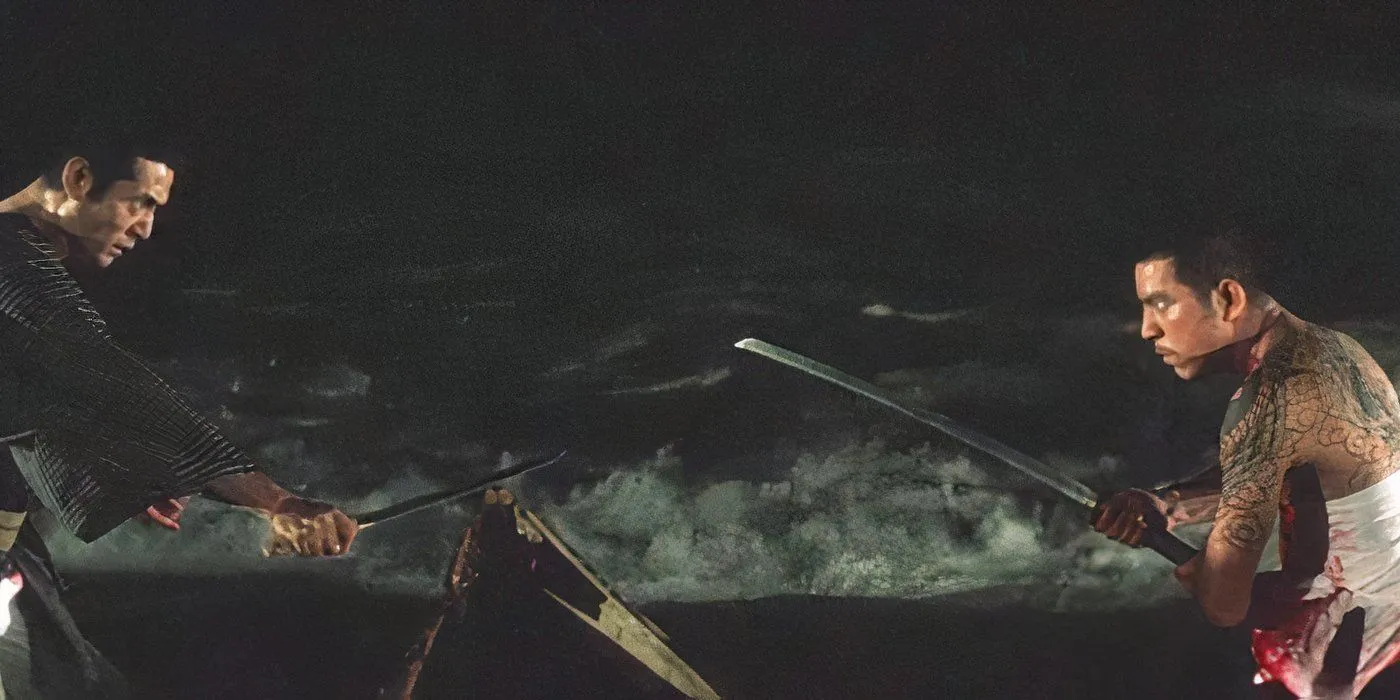
“The Wolves,”set in the post-WWII period, tells the story of Seiji, who reenters a world he barely recognizes after prison and explores the shifting moral landscape of the yakuza life. Directed by Hideo Gosha, the film poignantly captures the internal conflicts faced by those caught in the decay of traditional values.
The representation of characters grappling with profound changes resonates deeply, showcasing Gosha’s ability to reflect societal transitions in his storytelling.
10 Sympathy For The Underdog (1971)
Directed by Kinji Fukasaku
“Sympathy for the Underdog”serves as a testament to Kinji Fukasaku‘s directorial prowess, encapsulating the struggles of an aging yakuza boss rebuilding his organization post-incarceration. The film is rich with themes of loyalty and change that are intrinsic to yakuza cinema, resonating with audiences for its exploration of honor among criminals.
With pacing that enhances its compelling narrative, the film navigates the complexities of loyalty and the inevitable transformations within the yakuza world.
9 Graveyard of Honor (2002)
Directed by Takashi Miike
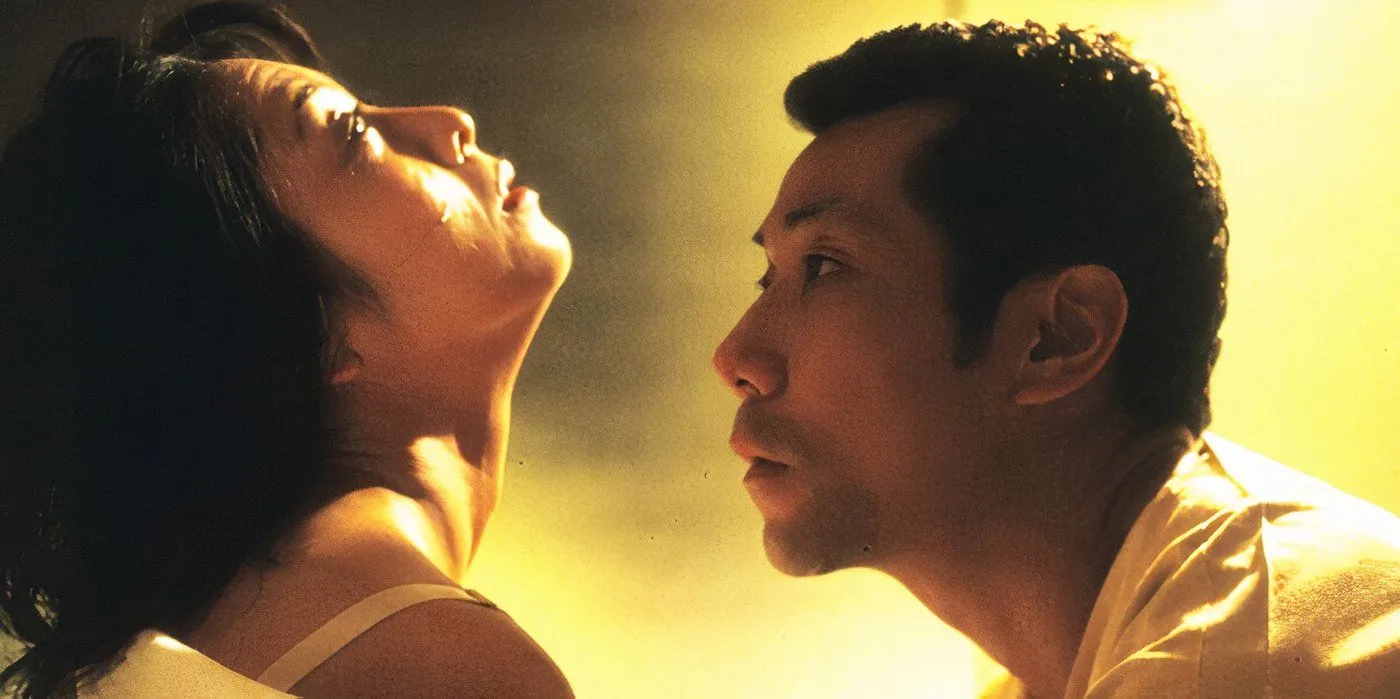
Takashi Miike’s “Graveyard of Honor”is a compelling remake of Kinji Fukasaku’s classic, extending the narrative complexity of yakuza life. Miike’s approach to the yakuza genre emphasizes his distinct vision, merging elements of horror with realistic portrayals of violence and gang life.
Clocking in at 40 minutes longer than Fukasaku’s version, Miike’s exploration of Rikuo Ishimatsu’s turbulent life offers depth and nuance, cementing his stature as a master storyteller.
8 Violent Cop (1989)
Directed by Takeshi Kitano
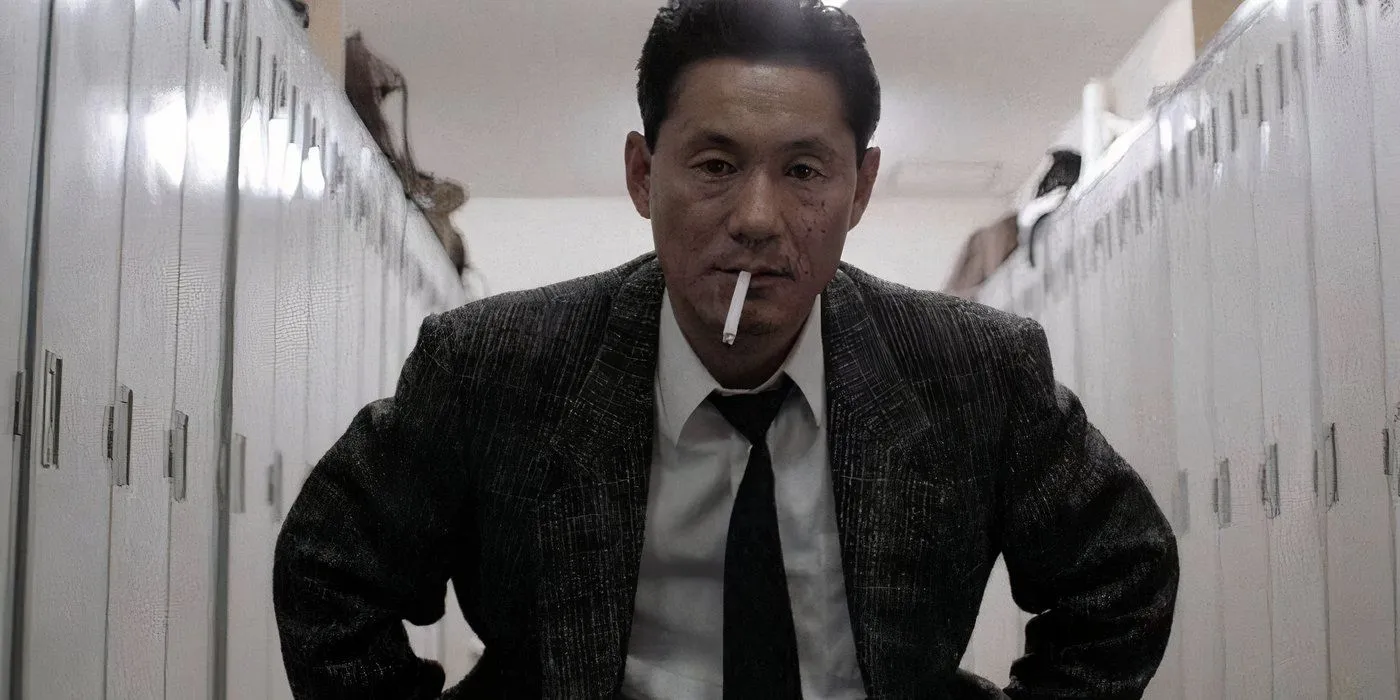
Another critical addition to Takeshi Kitano’s filmography is “Violent Cop,”marking his directorial debut after stepping in for Kinji Fukasaku. This film not only established Kitano as a formidable director but also spotlighted his talent as a compelling actor portraying a complex police detective embroiled in battles against the yakuza.
Kitano’s potent storytelling and unique stylistic choices in “Violent Cop”lay the groundwork for his subsequent successes in both acting and directing.
7 Tokyo Drifter (1966)
Directed by Seijun Suzuki
Regarded as one of Seijun Suzuki’s finest works, “Tokyo Drifter”brilliantly marries vibrant visual aesthetics with a compelling-yet-familiar yakuza narrative. The film’s artistic flair enhances its storytelling, as viewers are drawn into the world of Tetsuya Hondo, a yakuza enforcer navigating life after his gang disbands.
With its pop art influences and an exceptional soundtrack, “Tokyo Drifter”stands as a visually stunning achievement in yakuza cinema.
6 Drunken Angel (1948)
Directed by Akira Kurosawa
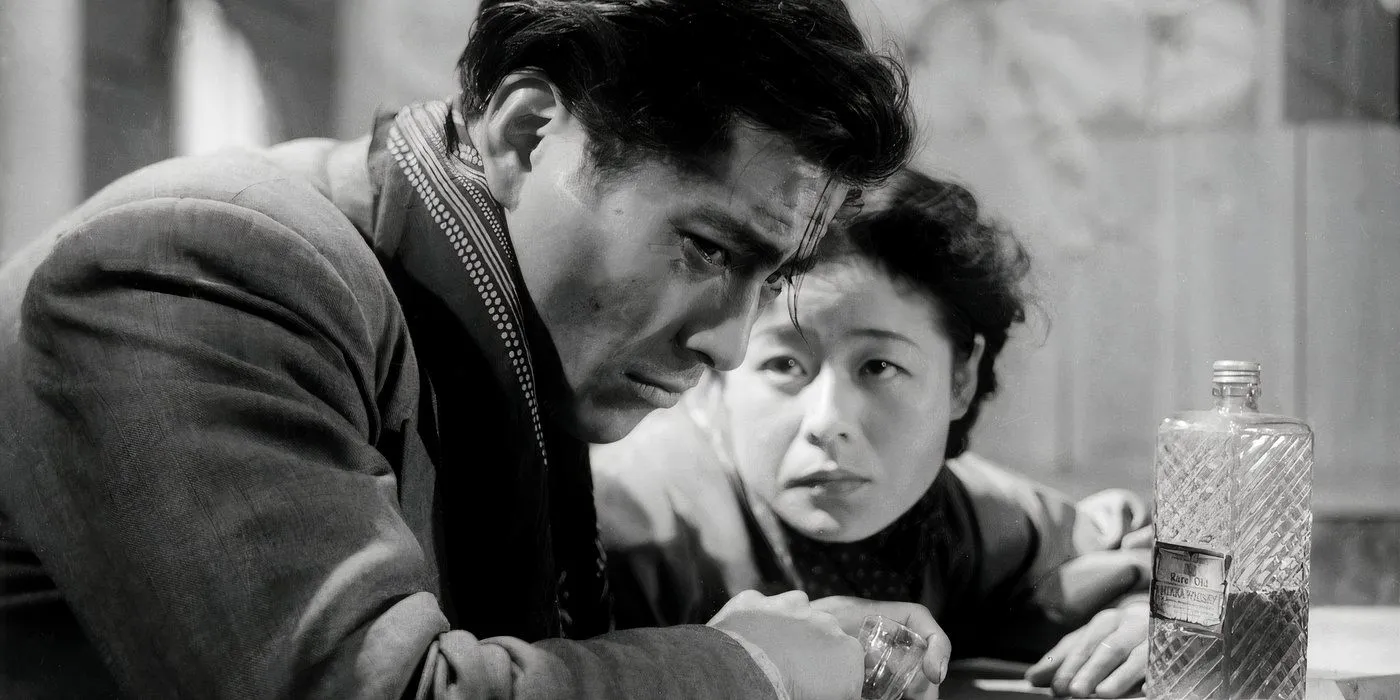
Directed by the legendary Akira Kurosawa, “Drunken Angel”holds a significant place in yakuza film history. Released in 1948, it explores the effects of post-war trauma on individuals amidst the backdrop of organized crime. Kurosawa’s collaboration with the iconic Toshirō Mifune is exceptionally compelling, showcasing Mifune’s talent as he portrays a complex character caught in the midst of moral dilemmas.
The film is regarded as one of the pioneering crime dramas, setting a precedent for the subsequent evolution of yakuza cinema.
5 Graveyard of Honor (1975)
Directed by Kinji Fukasaku
The 1975 “Graveyard of Honor”is a pivotal entry in the yakuza genre, chronicling the rise and descent of Rikio Ishikawa, a character whose life is steeped in violence and chaos. Under the direction of Kinji Fukasaku, the film explores the psychological and societal ramifications of a life steeped in organized crime.
With its basis in true events, the film captures the tumultuous post-war landscape of Japan, presenting a raw and compelling reflection of the life choices faced by those in the yakuza.
4 Pale Flower (1964)
Directed by Masahiro Shinoda
Masahiro Shinoda’s “Pale Flower”intertwines noir and yakuza tropes as it tells the story of a recently released member trying to navigate shifting power dynamics among rival gangs. The film’s exploration of complex relationships resonates deeply, enhanced by Shinoda’s direction that captures the essence of the Japanese New Wave movement.
The film remains a powerful commentary on loyalty and betrayal against the backdrop of a changing criminal landscape, elevating its place among the best yakuza films.
3 Battles Without Honor And Humanity (1973)
Directed by Kinji Fukasaku
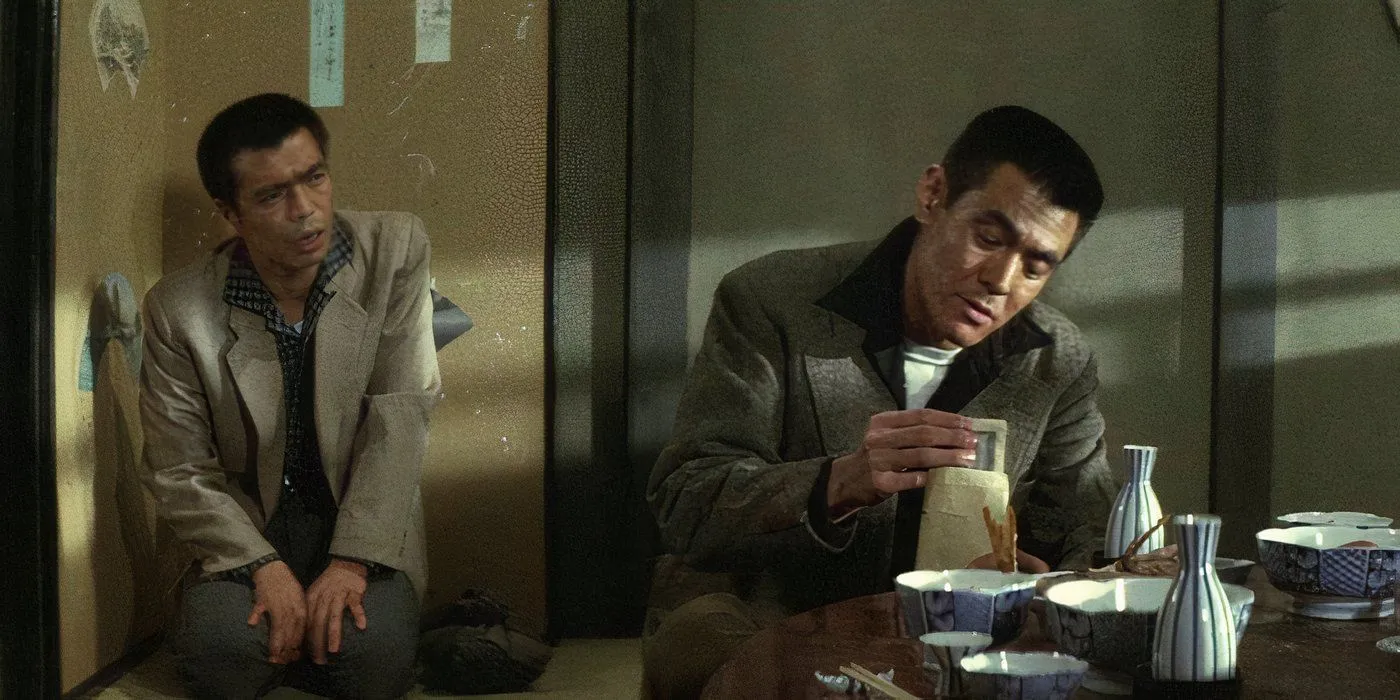
Often dubbed the “Japanese Godfather,””Battles Without Honor And Humanity”is a landmark film within the yakuza genre, documenting the evolution of organized crime in post-war Japan. The film follows a former soldier who finds a new purpose in the yakuza world, tackling themes of camaraderie and loyalty. Fukasaku’s direction allows for raw intensity and emotional depth, marking it as a critical entry in the genre and launching a franchise that defines Japanese cinema throughout the 1970s.
2 Pigs And Battleships (1961)
Directed by Shōhei Imamura
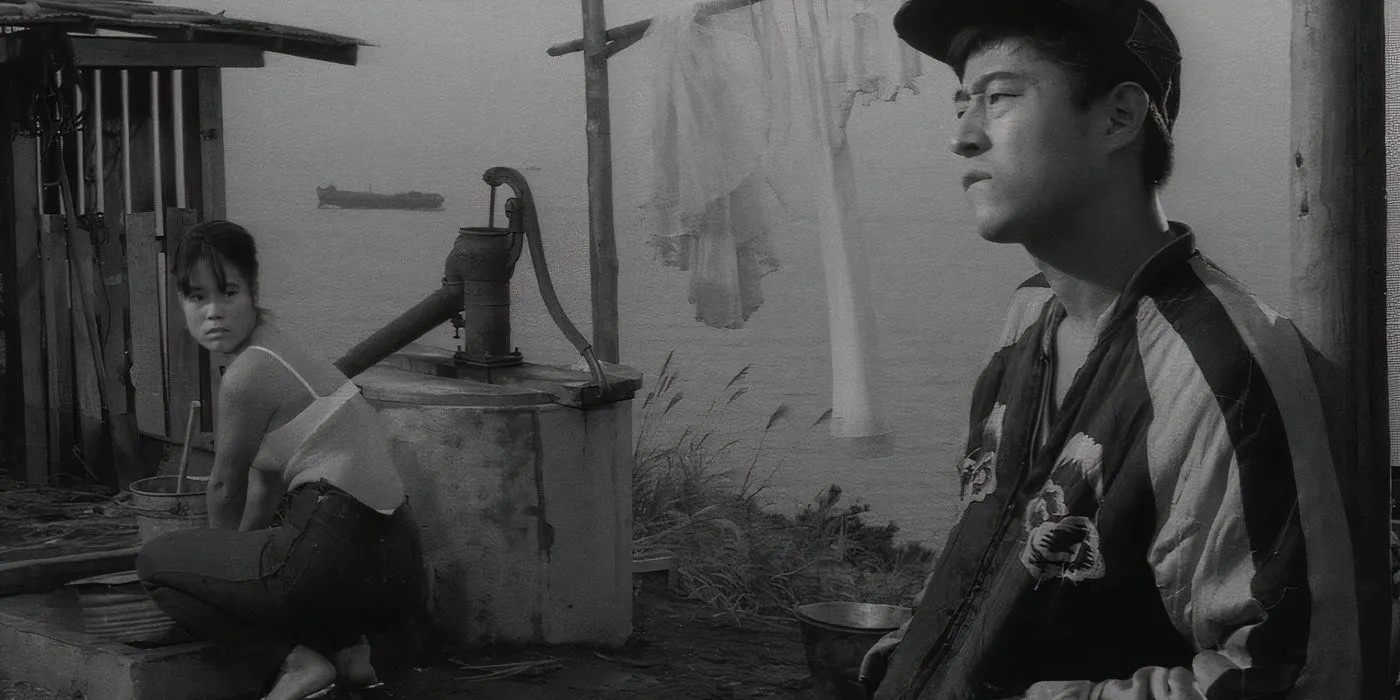
Shōhei Imamura’s “Pigs and Battleships”provides a candid exploration of post-WWII Japan under American occupation, through the eyes of Kinta, a yakuza member searching for identity in a changed landscape. The film thrives on its dark satirical elements, balancing social commentary with a poignant love story between Kinta and his girlfriend Haruko. Their journey illustrates the complexities of navigating loyalty and survival amidst the pressures of both the yakuza and the occupying forces, solidifying this film’s place within the canon of Japanese New Wave cinema.
1 Fireworks (1997)
Directed by Takeshi Kitano
Regarded as the pinnacle of yakuza cinema, “Fireworks”(originally titled “Hana-bi”) encapsulates the intricacies of the genre while illuminating Takeshi Kitano’s multifaceted talents as a director and actor. The narrative follows a police officer facing profound personal challenges, leading him to make moral compromises that entangle him with the yakuza.
Kitano delivers a haunting performance, intertwining his personal struggles with larger themes of redemption and despair. “Fireworks”is a testament to his legacy in Japanese film, marking it as a monumental achievement that defines what a yakuza film can represent.
